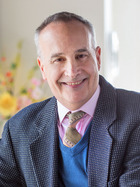Q. I'm a patient navigator and have had a few requests from patients and their families for LGBT resources (groups and information mainly). Any recommendations?
Although everyone’s experience with cancer is unique, we do know that the LGBT cancer experience can present many challenges, just a few of which include increased cancer risk, lack of social supports, and impacted communication and comfort with health care providers. The cancer experience, in addition to the stigma around sexuality and/or gender for an LGBT person navigating the medical system, can have an negative effect on a person’s health, both physically and emotionally.
As a patient navigator, you have the opportunity to humanize a setting which often feels dehumanizing for patients, particularly those that identify as LGBT. By making yourself aware of the resources that exist and learning to ask questions that show your sensitivity, you can make a big difference. Access to resources that are LGBT-focused and/or friendly often depends upon the area you live in. While many larger, more metropolitan areas have LGBT community centers and/or services, smaller communities often lack LGBT-specific resources, which can leave LGBT people feeling isolated or marginalized. However, there are a number of national organizations that provide a multitude of services for LGBT individuals with cancer and their loved ones, as well as their health care providers. These organizations do incredible work to address existing disparities through their research, advocacy, education, outreach and direct support services.
A great place to start is by reading LGBT Patient-Centered Outcomes: Cancer Survivors Teach Us How To Improve Care For All, a report published by the National LGBT Cancer Network. The National LGBT Cancer Network works to educate, train and advocate for LGBT cancer survivors. What’s fantastic about this report is the way it uses language, including quotes and stories, from actual LGBT cancer survivors, which gives you powerful insight into what LGBT cancer survivors find meaningful and relevant in their work with you, your team and your agency.
Secondly, the public policy advocacy organization, GLMA: Health Professionals Advancing LGBT Equality (formerly the Gay & Lesbian Medical Association), has many resources for professionals as well as patients, including Top Ten Issues to Discuss with Your Heath Care Provider for Lesbians, Gay Men, Bisexuals, and Transgender People. They also have a wealth of information on trans health resources.
For LGBT seniors, SAGE (Services and Advocacy for Gay, Lesbian, Bisexual and Transgendered Elderly is an important national resource. SAGE can direct callers to their local gay support systems closest to them.
And last, but certainly not least, here at CancerCare we have a number of support services for LGBT patients, survivors, and caregivers. CancerCare has a fact sheet “Coping with Cancer as an LGBT Person” that can be ordered by calling the our Hopeline at 800-813-4673 or ordered online. We offer free, short-term individual counseling over the phone and in person. We also have a face-to-face support group running in our New York City office:
- Gay and Bisexual Men With Cancer Support Group, in collaboration with SAGE
In addition to checking out the above resources, please feel free to call our Hopeline at 800-813-HOPE (4673) to speak with an oncology social worker about helping your LGBT patients and caregivers locate additional support.

 Answered by
Answered by